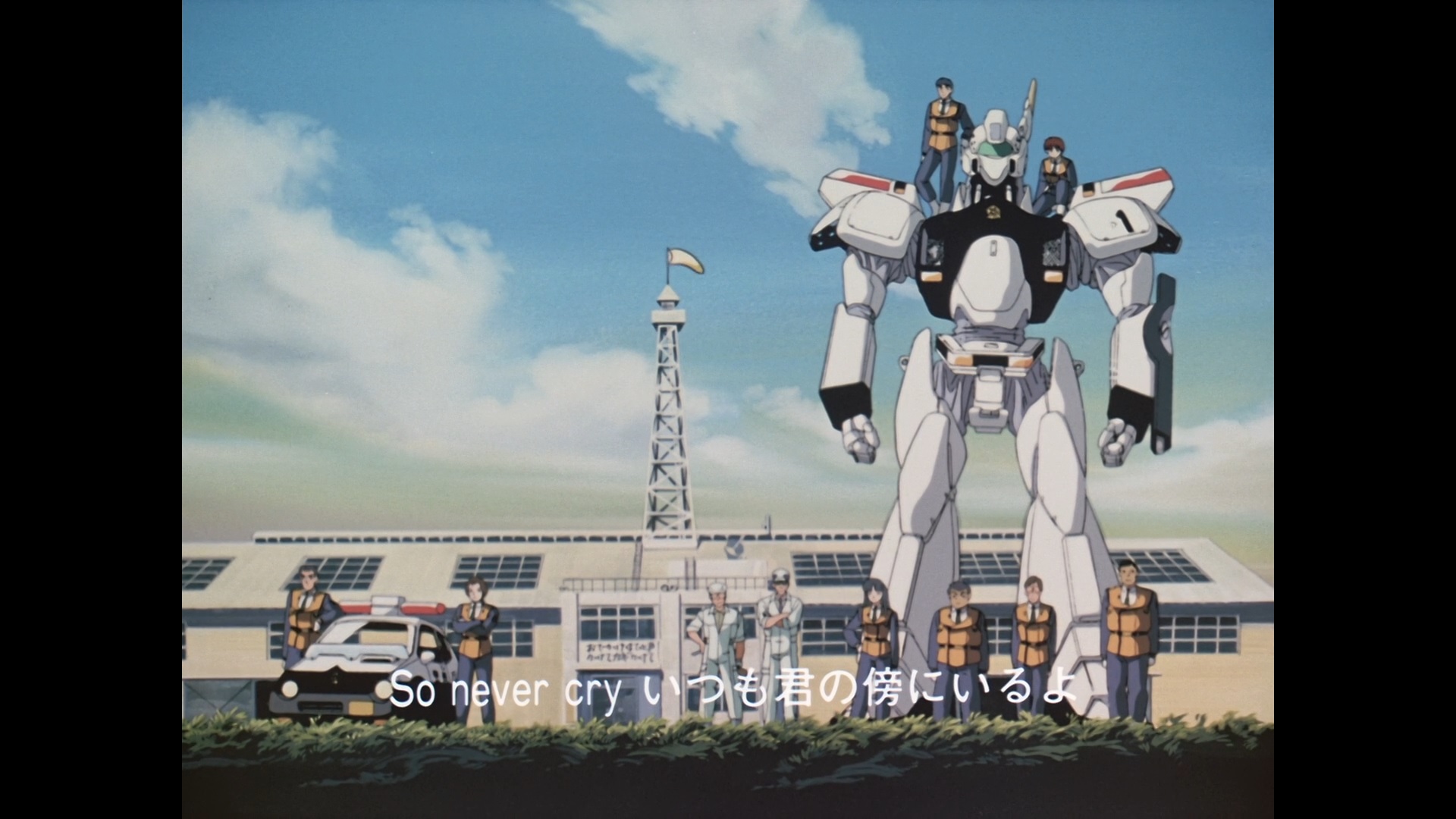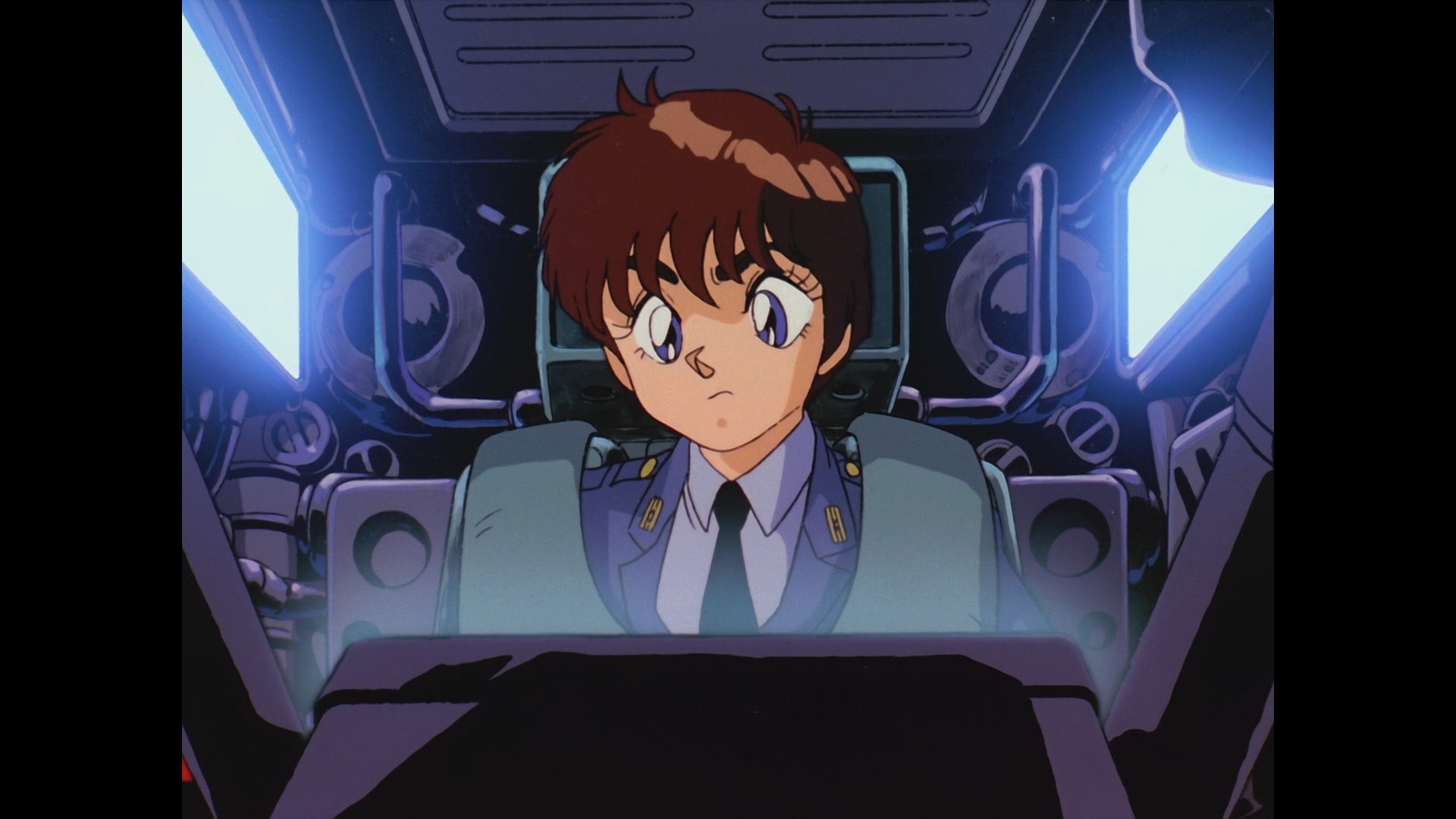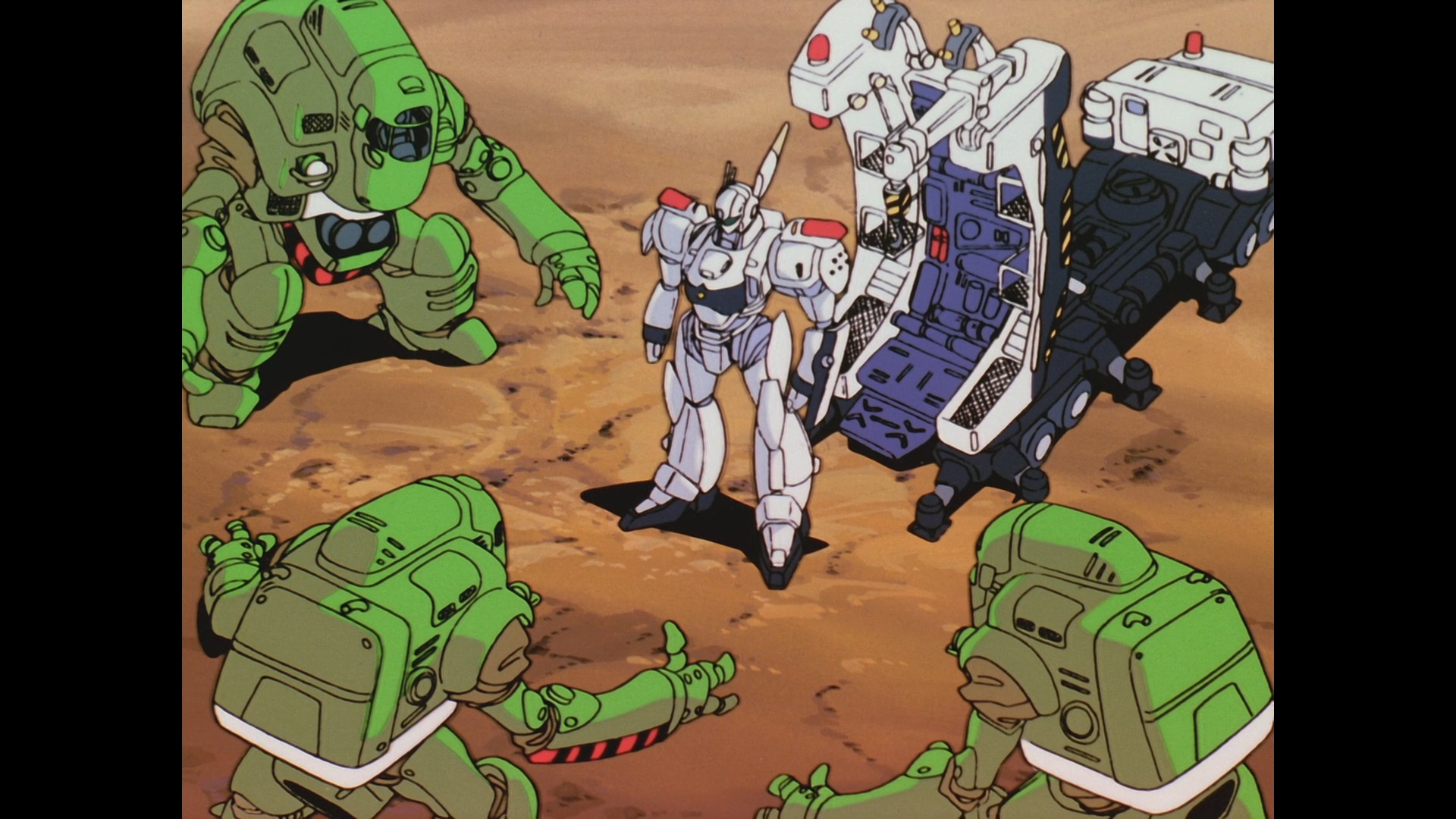
When you think of the mecha genre you usually think of intergalactic war between vaguely defined space kingdoms, or whatever it is Gundam is about (I don’t know much about Gundam, go ahead and roast me in the comments).
But what you generally don’t think about is policework grounded in a near-future setting. Patlabor The Mobile Police has all the hallmarks of a mecha series (that is: giant robots) but the scale of the series remains very down-to-earth compared to the spacefaring antics that make up mainstream mecha.
Patlabor The Mobile Police
Studios: Sunrise
Publishers: Tohokushinsha Film Corporation
Director: Naoyuki Yoshinaga
Translation: Sentai Filmworks
Premiere: October 10, 1989

Patlabor The Mobile Police (or just Patlabor) takes place in the far off year of around 1998… you have to admire the guts to place your sci-fi anime that close in the “near future”. But regardless, that’s our story. The world has experienced a revolution in manual labor thanks to the development of the aptly called “Labor” units. These units are piloted mech suits designed for everything from construction work to fire fighting and of course: police work.
We join in on the antics of the Second Special Vehicles Division, a division of the police dedicated to solving crimes and capturing suspects when the use of Labor units is involved. Afterall, a mechsuit is a dangerous weapon so it stands to reason the police would have a dedicated unit to handling them.
This show makes an amazing first impression with its wide cast of characters. Each of them have their own foibles and personalities without relegating themselves to shallow comic relief. There’s Noa Izumi, one of the main characters and a tomboyish Labor otaku who takes great pride in her piloting and knowledge about the machines, there’s Asuma Shinohara, the heir of Labor manufacturer Shinohara Heavy Industries who left his family behind and a source of romantic tension for Noa.

There’s also Isao Oota, a hotheaded pilot who makes poor decisions but compensates for it with bravery. Out of all the characters he’s the most predictable and cliche in terms of his personality, but all the same I enjoy his presence on screen.
Other characters include Hiromi Yamazaki, Kanuka Clancy, and more. No one among the main unit is every really ignored, which is a trait I’ve noticed in older anime. In newer anime it’s not uncommon for side characters to start to blur together. Or perhaps that’s just my bias for old school anime.
Studio Sunrise puts their experience with Mobile Suit Gundam to work in this series. The Labors are varied and detailed, their designs are thoughtfully put out in a way that makes sense for their function. Construction labors are more stable, fire fighting labors have ways to dispense water, it might sound simple but it would have been so easy to just slap different colors on them and call it a day; but thankfully they chose not to do that.

Patlabor makes full use of its setting of the “near” future. Characters remain relatable despite the advances of technology. I’m not ripping on anything in particular, but it’s easier to relate to characters like Oota as a musclefat bluecollar guy.
Not only are the characters relatable, but they’re featured front and center. Yeah there’s some ooh-ing and aah-ing over the mechs and technology, but the series could almost just be a police drama. The mechs are just set dressing that gives the action more oomph and I wouldn’t have it any other way. The real stories are the relationships, drama, and the small slice-of-life moments as the officers deal with their own troubles, and help one another.

Ultimately, Patlabor The Mobile Police is a shining example of anime from the late 80s and early 90s. Mecha fans will appreciate the detail given to the robots and technology in the series.
Meanwhile viewers who don’t otherwise like Mecha should give the show a chance, as the robots are only a part of the series and the emphasis remains focused on the lives of the Second Special Vehicles Division.
Patlabor The Mobile Police was reviewed via HIDIVE on a personal account. You can find additional information about Niche Gamer’s review/ethics policy here.